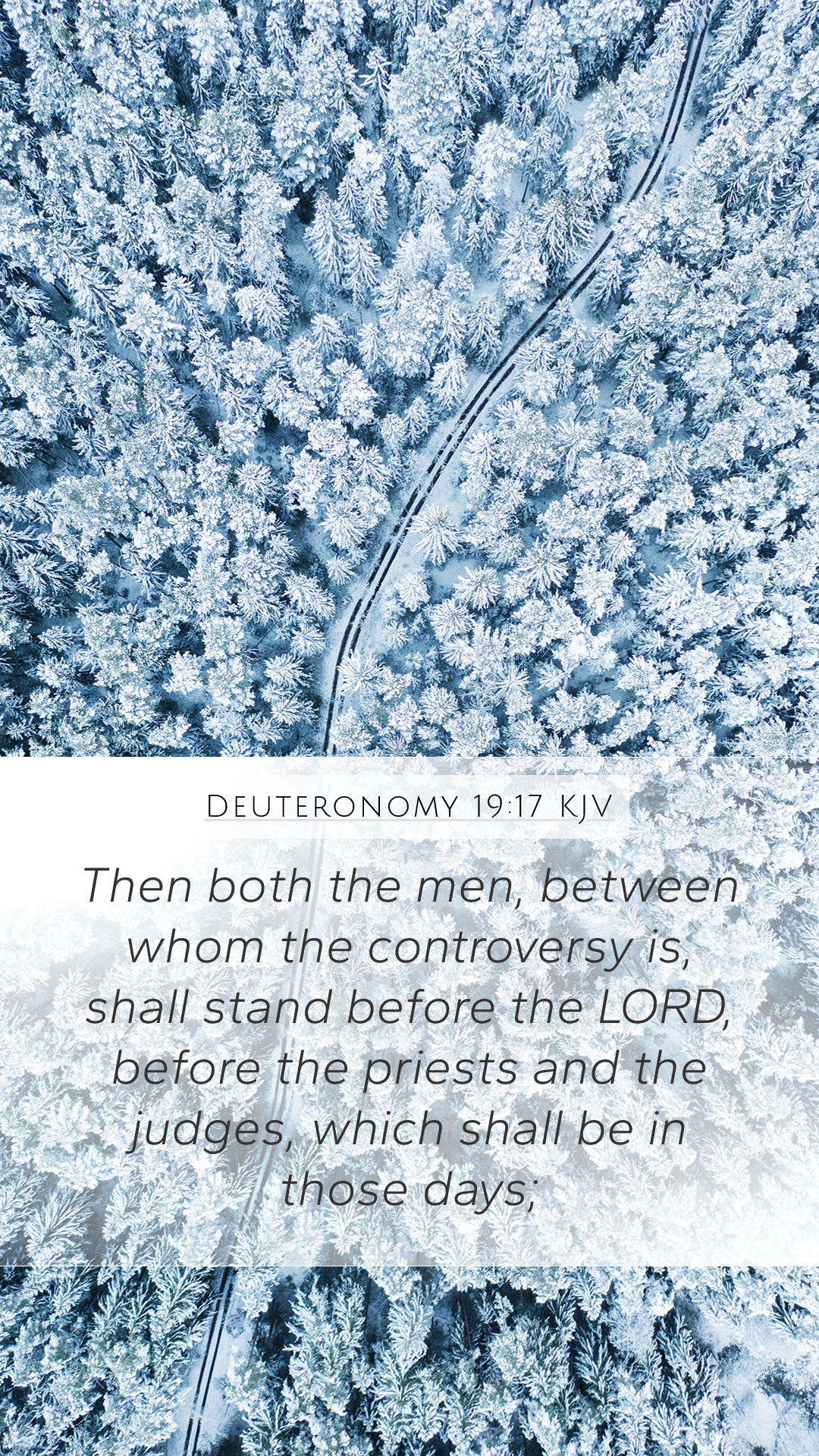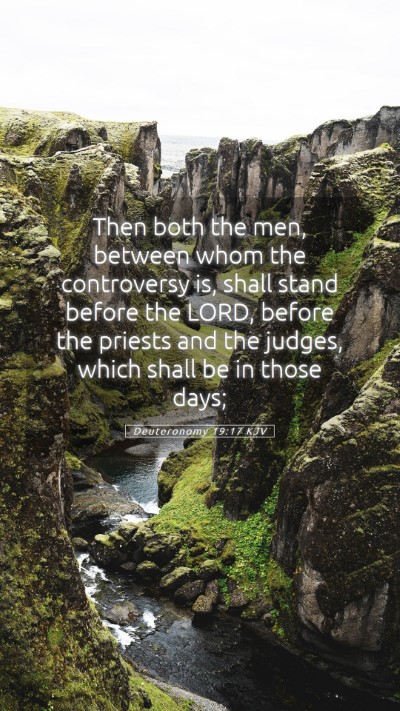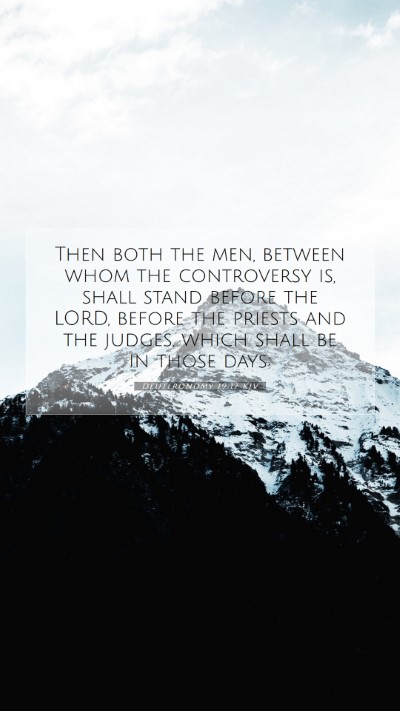Understanding Deuteronomy 19:17
Verse: "Then both the men, between whom the controversy is, shall stand before the Lord, before the priests and the judges, which shall be in those days."
Bible Verse Meanings
This verse presents a directive concerning the resolution of disputes in the community of Israel. It emphasizes the necessity for the involved parties to present themselves before the ecclesiastical authority—specifically, the priests and judges—who are tasked with interpreting the law and ensuring justice.
Bible Verse Interpretations
The focus of this verse is on establishing a framework for judicial proceedings within Israel. By compelling both parties to stand before God’s appointed judges, it signifies the moral and spiritual dimension involved in the pursuit of justice.
Bible Verse Understanding
In a broader context, this verse is an indication of God’s desire for fairness and righteousness to prevail within His covenant community. It illustrates that disputes are not merely personal matters but have implications on community integrity.
Bible Verse Explanations
Deuteronomy 19:17 underscores the command to hold disputes to a higher standard of accountability, invoking God in judicial matters. This adds a spiritual weight to civil judgment, reminding the people that their actions are under divine observation.
Bible Verse Commentary
- Matthew Henry's Commentary: Henry emphasizes that this directive ensures a proper adjudication of conflict, which must be handled with spiritual solemnity. He notes that the presence of both parties before God acknowledges that their conflict ultimately matters to Him.
- Albert Barnes' Notes: Barnes discusses the legal procedure outlined in this verse, which sets a precedent for how disputes are to be approached and resolved. He highlights the function of the judges and priests not just as arbiters but as representatives of God’s covenant.
- Adam Clarke’s Commentary: Clarke interprets this verse to reflect God’s order in society. He points out that by bringing matters before divinely appointed leaders, the resolution process becomes a model for ethical and just dealings.
Key Themes in Deuteronomy 19:17
Moral and Legal Obligations: The verse brings together the dual aspects of moral integrity and legal responsibility, showcasing the need for divine involvement in human affairs.
Judicial Authority: It establishes that judges and priests hold a significant role in mediating disputes, suggesting that authority in civil matters is divinely ordained.
Community Accountability: The aspect of standing before God reinforces the idea that individual actions impact the broader community, promoting a culture of accountability and respect for divine law.
Application in Daily Life
Believers today can find valuable lessons in this verse regarding how to approach conflicts and disputes. Instead of relying solely on personal judgments, it encourages seeking wise counsel and looking for God’s guidance in resolving differences.
Related Bible Cross References
- Matthew 18:15-17: Further outlines steps to resolve disputes in the church context.
- Deuteronomy 17:9: Mandates going to the priests for matters of judgment.
- Proverbs 18:17: Highlights the importance of hearing both sides in a dispute.
Conclusion
Deuteronomy 19:17 provides significant insight into the judicial processes within Israel and serves as a divine guideline for ensuring justice. Understanding this verse equips Christians with a deeper appreciation of the importance of fair treatment, accountability, and seeking God’s guidance in resolving conflicts.


